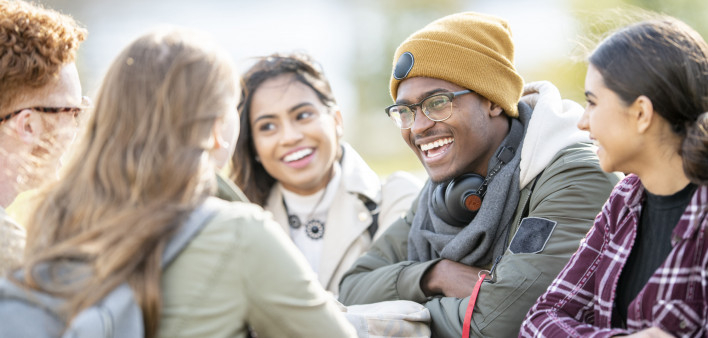Attention, young HIV and sexual health advocates: You can join the fight to end HIV by becoming a peer facilitator on college campuses and in LGBTQ communities. But the deadline for the training program is fast approaching—Thursday, August 19.
Mentoring and mobilizing young Black and Latino leaders is a key element of Generate, a new sexual health program for members of generation Z, which loosely refers to young adults ages 18 to 24 (millennials are those 25 to 38 years old). Generate is the latest phase of the “My Body, My Health” HIV campaign by the educational arm of the LGBTQ advocacy group Human Rights Campaign (HRC).
???? Build an LGBTQ+ network
— Human Rights Campaign (@HRC) August 14, 2021
???? Become a partner with HRC
????????❤️???????????? Promote sexual health
✊Build a generation free of HIV
Apply here ⬇️ https://t.co/qHCSNxgMWc
“Generate will train young activists to use the powers of their stories,” explains an HRC press release. These peer activists will “reach millions of their peers around the realities of HIV today through digital and earned media as part of a culturally relevant public education campaign, empowering LGBTQ Black and Latinx youth to shape their communities and futures.… The goal of Generate is to build on the strengths of LGBTQ youth advocates by mentoring them to spearhead innovative and meaningful grassroots-level advocacy, elevate HIV prevention efforts and create transformative change that combats HIV stigma.”
The application is available on this HRC.org page. The Generate program, according to the site, will train 15 peer facilitators; program details include:
- A $1,000 stipend.
- One-year commitment and virtual training September 10 to 11, 2021.
- A requirement to support and collaborate with a community-based organization and/or organizing group in your community on topics such as LGBTQ+ issues, minority-led social justice and HIV stigma and discrimination.
- Two virtual professional development workshops and bimonthly conference calls with peer cohort and guest speakers to strengthen leadership and advocacy skills.
- Dedicated coaching and guidance from HRC mentors.
- A requirement to organize at least one community event.
Applicants must identify as Black or Latino LGBTQ and be between ages 18 and 24, willing to participate in the program for a year, committed to advancing access and equality for Black and Latinx transgender women. They must also have videoconferencing capabilities and at least one year of experience in advocacy work. The HRC site has more details.
Efforts to promote health equity and end HIV must include young people, especially those at higher risk of contracting the virus. In 2018, youth ages 13 to 24 made up 21% of new HIV diagnoses, HRC points out. What’s more, studies show that one in two—half!—of Black cisgender men who have sex with men will be diagnosed with HIV in their lifetime. For cisgender Latino gay and bisexual men, that number is 1 in 4 (25%). HIV rates are even higher for Black and Latina transgender women.
“It is impossible to ignore that over half of young people living with HIV do not know their status—mostly due to inadequate HIV educational resources targeted at the younger generation,” adds J. Maurice McCants-Pearsall, HRC’s director of HIV & Health Equity, in the press release. “It is imperative to shine a light on these health disparities and work with Gen Z changemakers to create educational tools for their peers.”
HRC launched “My Body My Health” earlier this year. The campaign is a product of the Human Rights Campaign Foundation, HRC’s educational arm, and is supported by Gilead Sciences, best known for many of its blockbuster HIV medications as well as its COMPASS initiative to fight HIV in the South.
You can learn more about the program, including sexual health information and related videos (like the one above), on HRC’s new website, MyBodyMyHealth.org.
For more information on an earlier component of the “My Body, My Health,” in which HRC helped launch a directory of sexual health and LGBTQ resources for historically Black colleges and universities, see “A New HIV Tool for Black College Students” and “HRC Teams With Six LGBTQ, Black and Latino Groups to End HIV.”
For background about HRC’s work with Gilead Sciences, read the POZ interview with HRC president Alphonso David from earlier this year: “Behind a New $3.2M Partnership to Transform Black and Brown HIV Efforts.”
In related HIV news about youth, see “How Well Do Black Young Adults Understand HIV and U=U?”







Comments
Comments